Sustainability
ECONOMIC
MARKET ACCESS
Most of our farmers are from remote areas of India. Before working with Organic Belseri, they didn’t have market access for cash crops and were producing grains only for their own consumption. Some farmers had access to vast stretches of community land, but lacked the means to till them. This resulted in poor yields and a loss of production opportunity. We provided them a market for various cash crops and also supplied seeds and knowledge to improve their crops. This gave the farmers an opportunity to start farming commercially and earn an income for their livelihood.
LOWER FARMING COSTS
Apart from stable market access, our farmers benefit from the drastic reduction in farming costs. Most of our manpower consists of project staff who are dedicated to working closely with farmers, engaging and training them in organic & natural farming techniques. We promote the use of organic & natural alternatives to harmful pesticides and fertilizers. These organic& natural inputs can be prepared using resources on the farm which are freely available, and therefore eliminate the use of expensive chemical products. The costs are further reduced as we pick up the material from farm-gates and save the farmer transportation costs. Organic Belseri also works directly with farmers, without the involvement of brokers who charge commission. Overall, these measures reduce the costs of the farmers by up to 35%.
HIGHER REVENUE
The removal of chemical fertilizers also prevent the degradation of the soil. Removal of pesticides reduce the crop’s dependency on external artificial means, while organic supplements are used to boost crop immunity and make them more resistant to pest attacks and weather changes. We also promote the use of beneficial insects and organisms. Overall, these efforts nurture the farm’s ecosystem and improve the yields and crop quality over time. We also pay a premium to farmers for their produce, which contributes to a growth of 10-15% in the farmer’s income.
SOCIAL
In Indian society, the caste system, or the class into which a person is born, is often a determining factor in that person’s access to education, decent living conditions, financial stability and overall quality of life.Organic Belseri seeks to break down these social barriers and offer farmers, who often fall at the bottom rungs of the economic ladder, an opportunity to advance to higher income and education levels. We help these farmers with the know-hows and farm inputs with an extended credit period.
When a product carries the FAIRTRADE mark, it means the producers and traders have met Fairtrade standards. The Fairtrade standards are designed to address the imbalance of power in trading relationships, unstable markets and the injustices of conventional trade. To achieve their objectives, Fairtrade requires.
Fairtrade Standards of Practices to be followed to ensure that farmers and workers are given fair treatment such as acceptable working conditions.
Fairtrade Minimum Prices (determined by the Fairtrade standards and pricing unit) to ensure that producers can cover their average costs of sustainable production. It acts as a safety net for farmers during times when world markets fall below a sustainable level.
Fairtrade Premium – an additional sum of money that farmers receive for products sold on Fairtrade terms. This is in addition to the organic premium that we pay to the farmers. This money goes into a communal fund for workers and farmers for use in improving their social, economic and environmental conditions
So far, approximately USD 1.5 million has been allotted for use in community development projects. These include a few of the projects mentioned below:
PROJECTS

On-site water conservation and irrigation initiatives
We are facilitating the excavation of ponds and construction of check dams (small dams across a drainage ditch, gully, or swale) in various villages. This infrastructure helps in preventing erosion and the run-off loss of water. The preserved water further enhances the quality and moisture of soil and water-tables. So far, we have constructed two ponds and two check dams.

Creating drinking water infrastructure
Being a dry region, Saurashtra (a county in the state of Gujrat) faces severe water shortage. Unavailability of water for animals forces many villagers to migrate to green pastures in mainland Gujarat. During the summers, water become the single factor that affects day-to-day life. We have initiated several projects to address water problems faced by these communities.

Community based drinking water projects
Suminter has undertaken a water-harnessing initiative combining bore wells and storage tanks in 16 villages. These projects cumulatively serve nearly 2,000 households. Apart from this, we have installed 10 RO water purifier plants with water coolers for community use in Solapur, Maharashtra.
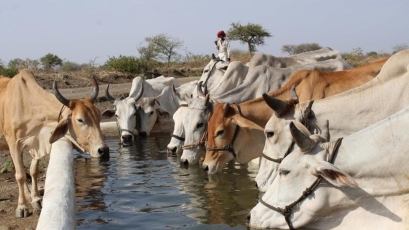
Water projects for animals
Livestock are an important component of households in Gujarat. To address the water crisis for animals, we created storage tanks (locally called ‘awado’) in 8 villages.
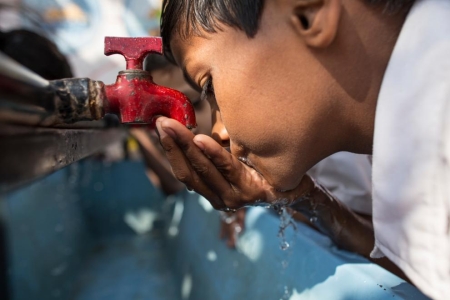
Water projects for schools
Water storage tanks have been constructed in schools in 8 villages across our projects.
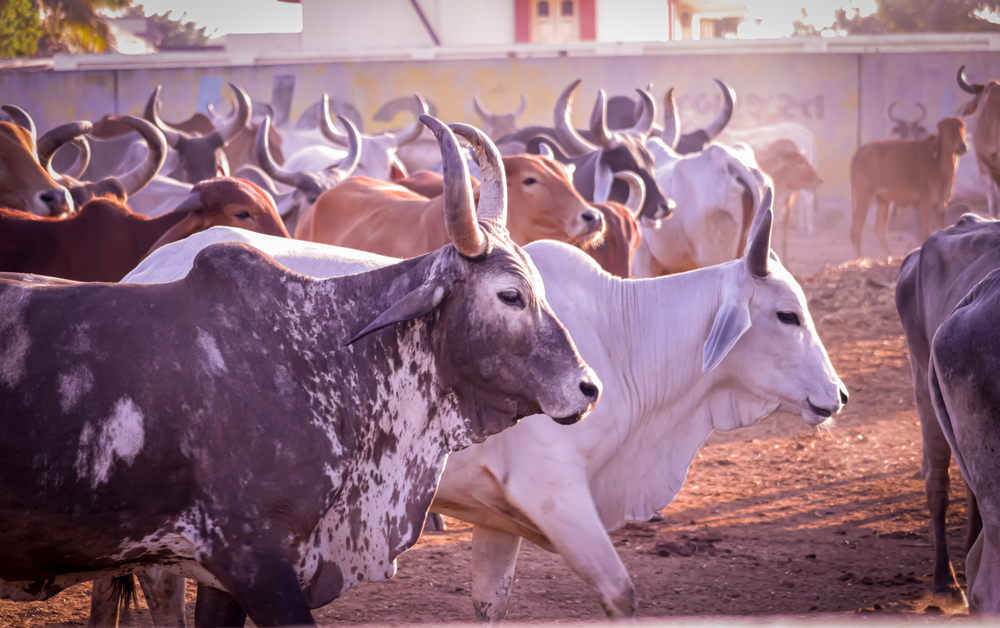
Project PASHU
- Immunization against hemorrhagic septicemia
- Immunization against Foot and Mouth Disease
- Counseling of livestock owners on nutrition
- Fertility treatment for animals
- Treatment of other ailments
These camps were organized in collaboration with the Veterinary Department, Government of Gujarat.
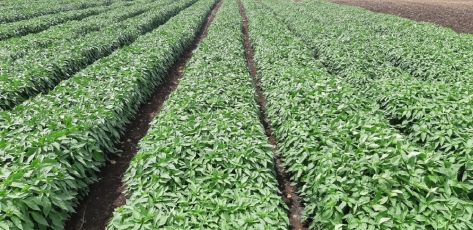
Drip irigation
Organic Belseri has been promoting drip irrigation over conventional flood irrigation for several years. We have encouraged and arranged an exposure visit of about 420 farmers from various clusters to successful drip irrigation projects. We continue to provide financial assistance of upto 10% of the project cost to farmers who participate in the drip irrigation project. Major impacts of drip irrigation include:
- On-site application of water leads to a reduction in water requirements by as much as 75%.
- Reduction in power / fuel needs by 75% (while a diesel pump takes 4 hours of running to irrigate a piece of 1Ha of land in conventional flood irrigation systems, it takes only 1 hour with the drip irrigation process).
- Due to the on-site application of water, germination and growth of weeds are adversely impacted. This saves farmers a substantial amount of money that they would have otherwise invested in weeding
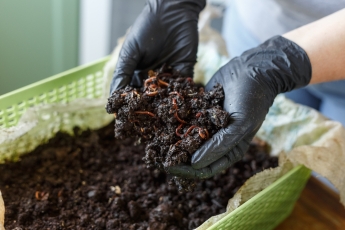
Promoting Vermicomposting
Vermicomposting is the breaking down of organic material through the use of worms, bacteria, and fungi. Organic Belseri campaigned for vermicomposting with the objective of effectively utilizing organic household and animal waste, and to promote its many benefits. Along with producing a nutrient-rich fertilizer through minimal drainage, vermicomposts also retain water very well and produce an exceptional soil conditioner – something Indian farm lands really need.
Organic Belseri constructs the vermicompost pits for the farmers at zero cost and assists them with all other requirements to maintain the pit, including training on compost production. In the first phase, 3 permanent structures for mass production of vermicompost were built, supplying 200 farmers with manure. Additionally, 300 small, individual portable vermicompost pits have been distributed to farmers to produce their own on-farm vermicompost.

Distributing Farm Inputs
We assist farmers with farming equipment such as automatic weeders, harvesting bags, tarpaulins, tilling machines, spray pumps, automatic dryers, galvanized ladders, slicers, solar panels systems, and so on.
We focus on identifying obstacles that hinder communities to meet their developmental ambitions and enhance skills that are required to overcome these obstacles. We focus most of our energy towards capacity-building of member farmers and neighboring communities.
These include activities such as regular training on organic farm practices, welfare schemes, and women’s participation and self-help group development, among others. We also encourage farmer participation in Krishi Melas, Exposure Tours, and learning activities at Agriculture University, with the sole objective of enabling farmers learn and replicate successful models.
Through these activities, among others, we have helped 5500 farmers so far.
